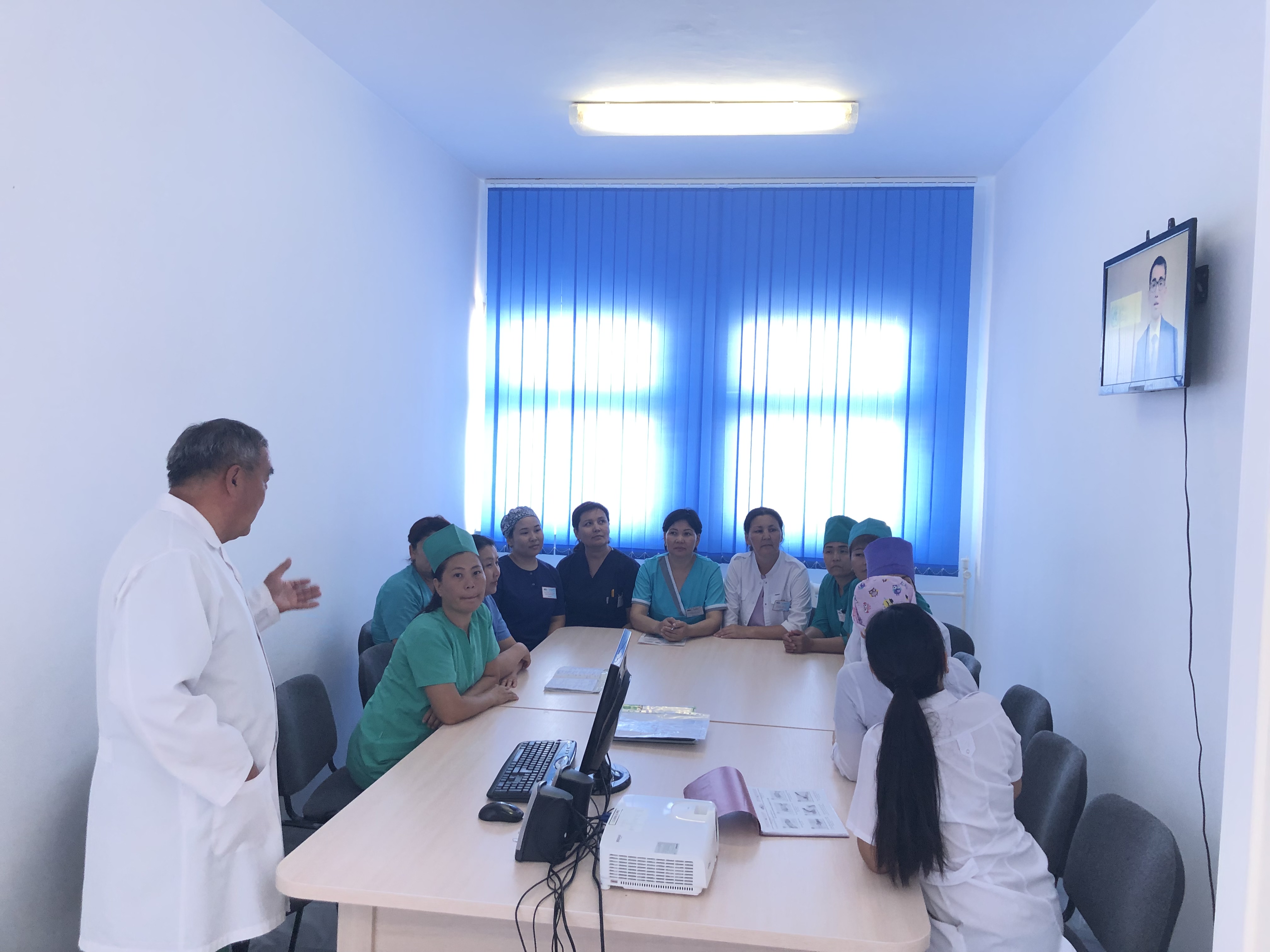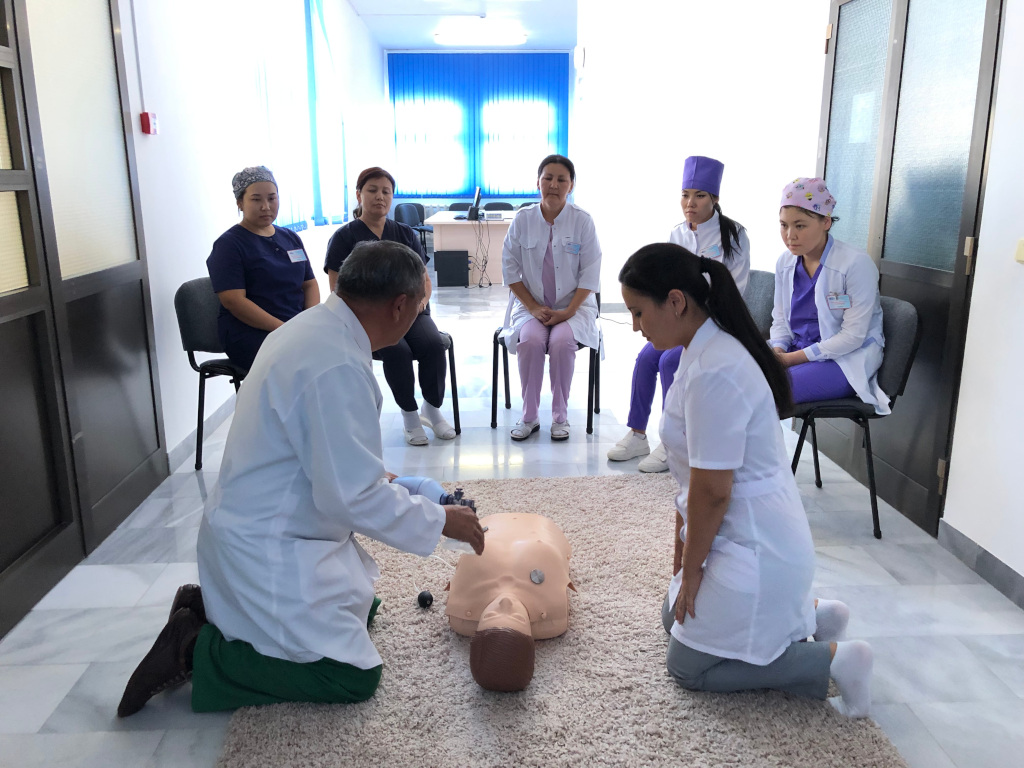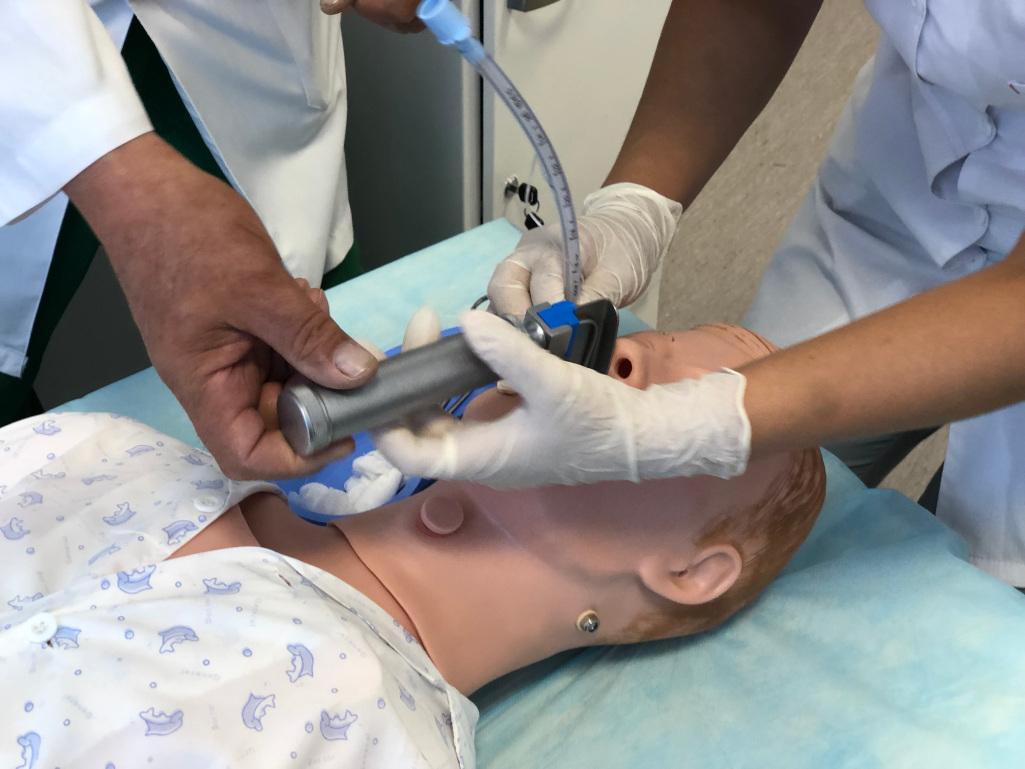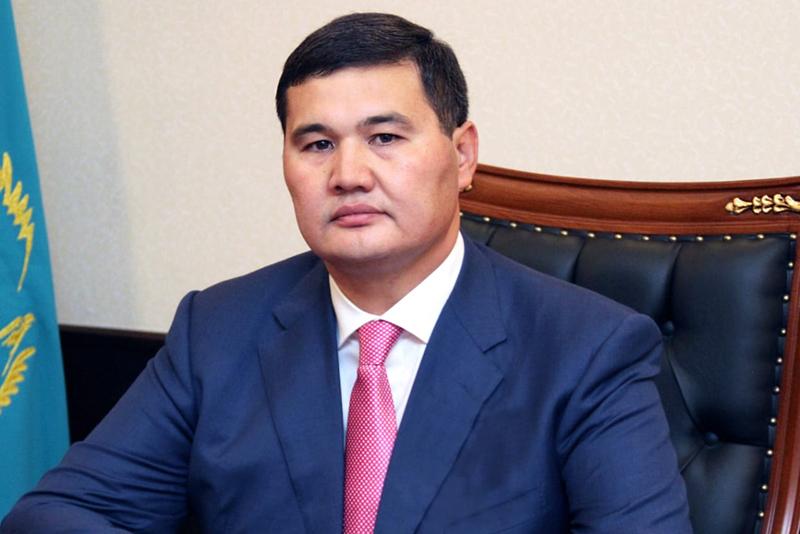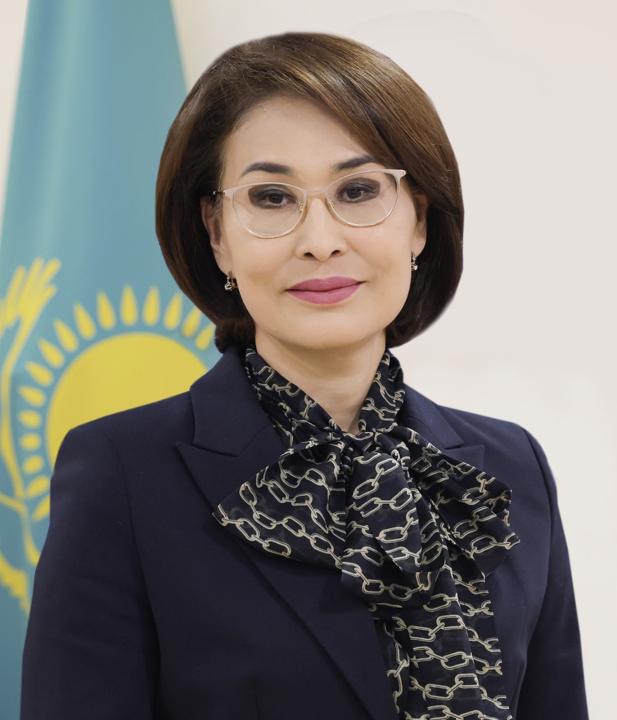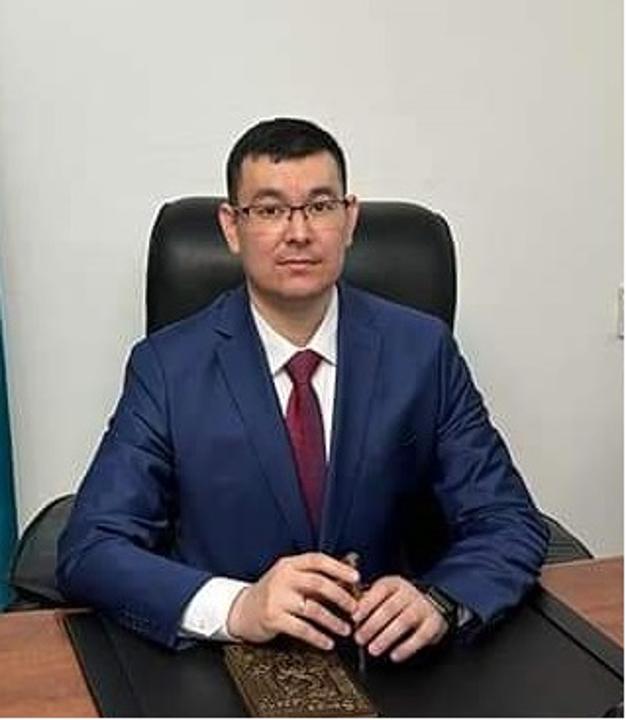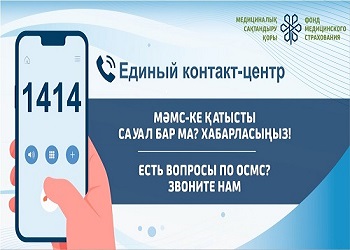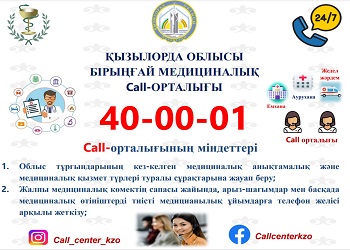In the multidisciplinary regional hospital of the city of Kyzylorda opened training and simulation center
The training and simulation center of the multidisciplinary regional hospital has been involved since February 6, 2019 to train and hone the professional skills of medical workers.
The center is led by physician Zhumabaev Gabit Tenelovich, a resuscitation doctor, a simulation skills instructor who has undergone special training, and a senior nurse with a long experience, Seilova Sandigul, who underwent advanced training according to the international standard.
The simulation center is equipped with dummies, simulators and computer simulators with a modern information base that allows you to fully simulate the clinical situation as close to real as possible, to work out the algorithm of actions for each student and the team as a whole.
Classes are conducted with medical workers to train and develop practical skills in emergency situations: basic and extended cardiopulmonary resuscitation (CPR), emergency care for anaphylactic shock, injuries, obstetric pathologies, tracheal intubation, peripheral vein catheterization for infusion therapy.
Training is also conducted on sister technologies: catheter care, gastric drainage, bladder catheterization, for beginning veins, ECG removal, patient safety standards, etc.
The center is equipped with the latest mannequins and phantoms for developing cardiopulmonary resuscitation skills, for chest injuries, and sisterly procedures. There is also a lecture hall and an office for practicing hand washing techniques to automatism.
Classes are held daily according to plan. It is planned to conduct classes in medical ergonomics.
In the future, it is planned to purchase simulation robots that are able to breathe, they will have a heartbeat, an excretory function will work, and any situation requiring medical assistance may happen to them.
The opening of a simulation center will improve the quality of training for young specialists, control the quality of work of practicing specialists, training without harm to the patient, and the use of simulation technologies will reduce the number of professional errors.
The simulation will provide the staff with the opportunity not only to provide high-quality care to the patient, but also to make it the most complete, consistent and reliable
